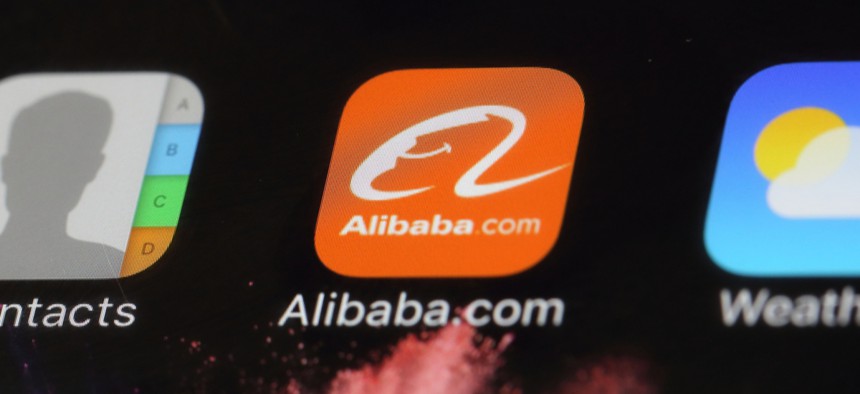Just in Time for Its Stellar Earnings, China is Going After Alibaba

charnsitr/Shutterstock.com
Just hours before Alibaba released its numbers, the Chinese government shook its fist at the Hangzhou-based e-commerce giant.
File under: how to rain on a parade.
August 17 Alibaba reported yet another winning set of quarterly financials. Revenue was up 56 percent on-year hitting $7.4 billion, and operating profit more than doubled over the same period to hit $2.88 billion.
While investors will likely be pleased, the Chinese government is not. Just hours before Alibaba released its numbers, the Chinese government shook its fist at the Hangzhou-based e-commerce giant.
The Zhejiang province branch of the Cyberspace Administration of China (CAC) sent a stern letter directed at Alibaba (link in Chinese), its music-streaming subsidiary Xiami, and three other companies. The letter accused Taobao, Alibaba’s e-commerce marketplace, of allowing some of its vendors to sell “tools that break computers’ IT systems,” “illegal controlled substances,” “illegal VPN tools,” and “internet accounts.” It demanded that Alibaba immediately remove such vendors from its site, and also called on it to launch a “self-investigation.”
“Taobao forbids the listing or sale of any products that are forbidden by applicable law,” said Alibaba in a statement. “We screen and remove product listings from third-party sellers which violate our marketplace rules. We will continue to strive to ensure that third party sellers comply with our marketplace rules.”
The letter marks the latest instance of a branch of the Chinese government directing ire towards the world’s largest tech companies. Last week the CAC in Guangzhou and Beijing announced it would launch an investigation into lewd content on three popular social media platforms—Baidu’s Tieba, Tencent’s WeChat, and Sina’s Weibo. Earlier, in July, state mouthpiece People’s Daily published an editorial calling Tencent’s Honour of Kings, a wildly popular mobile game, “poison.” And before that, Apple removed dozens of VPN apps from its Chinese App Store due to government pressure.
These crackdowns, to some extent, are ritual. China’s next Communist Party congress is coming up (the date has not been announced, but it’s likely September or October), and the event might result in a reshuffling of the nation’s top leaders. Whenever such major political events take place, internet authorities routinely hinder VPN access, making it harder to jump the firewall and access banned sites like Facebook and YouTube. Issuing directives that call for “investigations” are often just a means for the government to show its power over a group of companies that are deemed to have ever-increasing influence on Chinese society.
The fear is that the government will go beyond mere signaling and actually prevent companies like Alibaba from making as much money as they can. Thus far, investors aren’t concerned—Tencent’s stock price suffered a dip when the government targeted its smash-hit game, but quickly recovered. The same goes for Alibaba—its stock price was up 5% in pre-trading on the NYSE.
That sentiment might not be shared by actual consumers though—VPNs mark one of the few ways Chinese residents can access the free internet, and the crackdown could very well continue on even after the party congress ends. No warning is too small to heed.
NEXT STORY: Watchdog dings DHS data efforts





